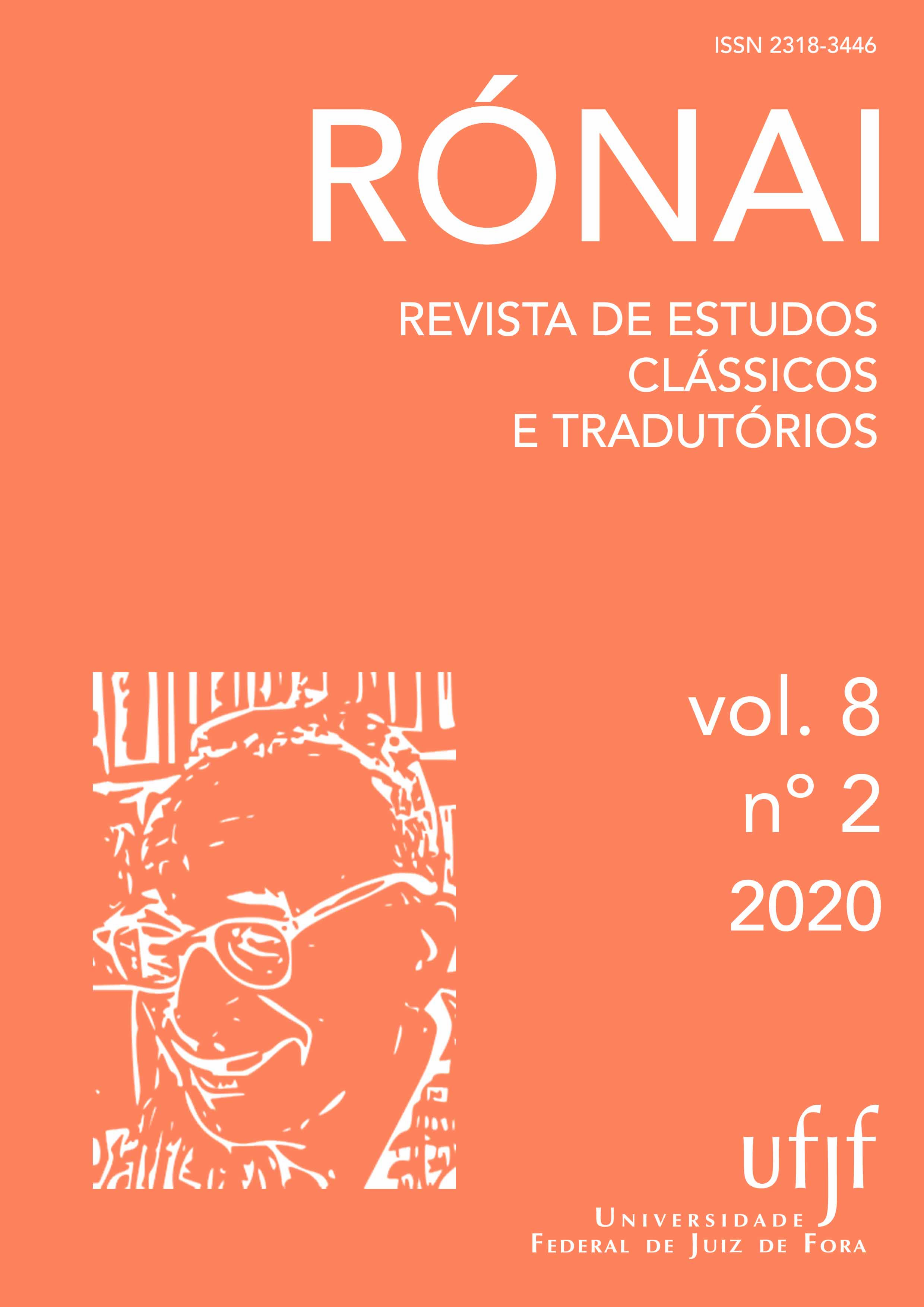Le caractère obscène des expressions linguistiques : la lettre de Cicéron a Paeto (Ad Fam. 9.22)
DOI:
https://doi.org/10.34019/2318-3446.2020.v8.32445Keywords:
Cicéron, obscène, cacophonie, uerecundiAbstract
Ce travail de recherche présente une traduction annotée de la lettre de Cicéron à L. Papinius Paeto (Ad Fam. IX, 22), dans laquelle Cicéron aborde la nature et l’origine de l’effet obscène exprimée par le langage. Il utilise des exemples pratiques pour démontrer que le caractère obscène de quelques expressions linguistiques ne relève pas de la nature de la chose référée ni de la nature des mots prononcés, mais de l’interprétation des auditeurs. Notre traduction a été faite sur l’édition de Shackleton-Bailey (1977), avec notes explicatives.
Downloads
References
ADAMS, James N. The Latin sexual vocabulary. London: Duckworth, 1982.
KEIL, Heinrich. Grammatici Latini. 8 vols. Hildesheim: Georg Olms, 1961.
LIDDLE, Henry G.; SCOTT, Robert; JONES, Henry S. A Greek-English Lexicon. Oxford: Clarendon Press, 1996.
MAGALLÓN GARCÍA, Ana-Isabel. Marco Tulio Cicerón: Cartas a los familiares, vol. 2. Madrid: Editorial Gredos, 2008.
SCHMIDT, Otto Eduard. Der Briefwechsel des M. Tullius Cicero von seinem Prokonsulat in Cilicien bis zu Caesars Ermordung. Leipzig: Druck und Verlag von B. G. Teubner, 1893. Disponível em: https://archive.org/details/derbriefwechseld00schmuoft/page/364. Acesso em: 30 set.2020.
SHACKLETON-BAILEY, David R. (ed.). Cicero: Epistulae ad Familiares. Cambridge, Cambridge University Press, 1977. Disponível em: https://latin.packhum.org/loc/474/56/175/80-93@1#175. Acesso em: 30 set.2020.
WILLIAMS, W. Glynn (trans.). Cicero: Letters to his friends. London: William Heinemann; Cambridge, Mass.: Harvard University Press, 1960.
Downloads
Published
How to Cite
Issue
Section
License
Copyright (c) 2020 Lucas Dezotti

This work is licensed under a Creative Commons Attribution 4.0 International License.
Copyright
The authors of the published contributions agree with the following items:
1. The authors keep the copyright and convey to the journal the right of first publication, the work being licensed under a Creative Commons Attribution License 4.0 International.
2. The authors are allowed and stimulated to publicize and distribute their work online after the publication in the journal, recognizing first publication in this journal.
3. The authors of the approved works authorize the journal to distribute their content, after publication, for reproduction in content indexes, virtual libraries and similars.
For more information about Creative Commons Attribution License 4.0 International, please, go to: https://creativecommons.org/licenses/by/4.0/deed.en
Editorial exemption
The authors of the published contributions are entirely and exclusively responsible for their contents. Its content does not represent an official position of Rónai - Revista de Estudos Clássicos e Tradutórios neither of Faculdade de Letras da Universidade Federal de Juiz de Fora or their partner institutions.



